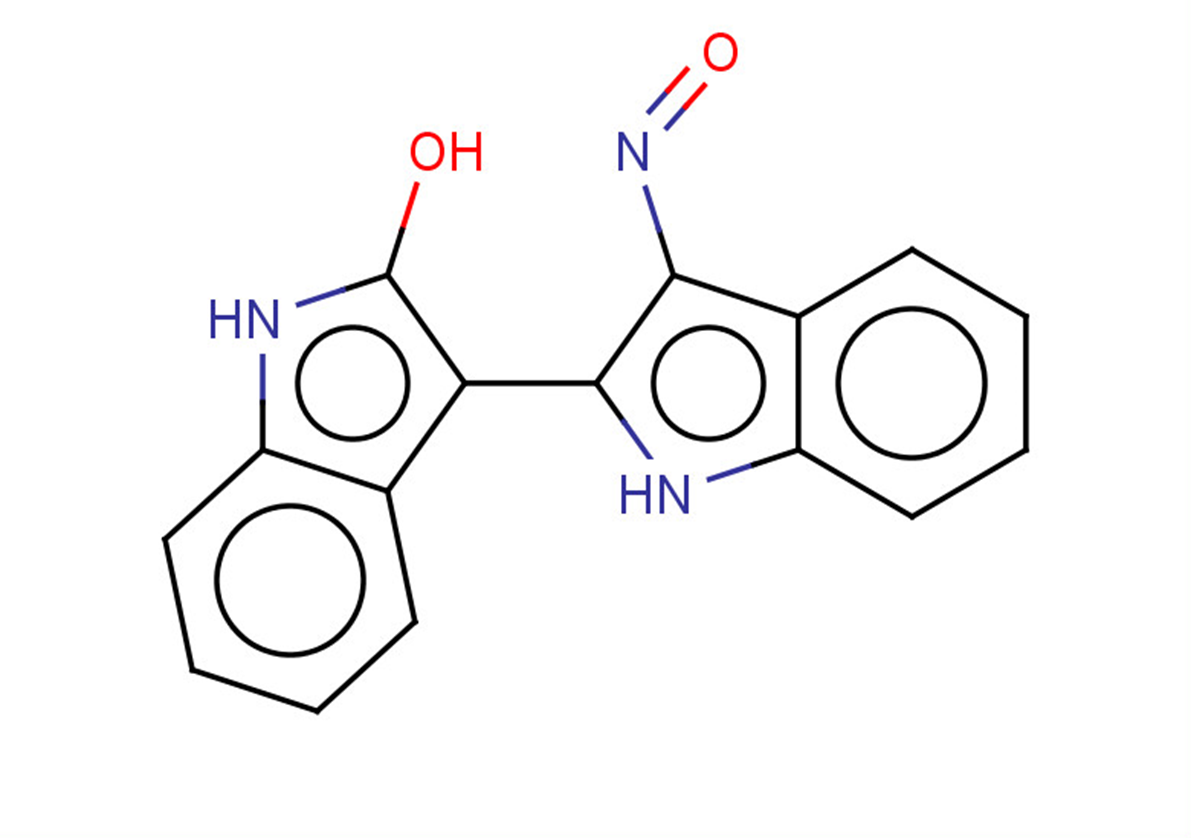
Indirubin-3-monoxime
CAS No. 667463-82-3
Indirubin-3-monoxime( —— )
Catalog No. M24681 CAS No. 667463-82-3
Indirubin-3-monoxime is an effective inhibitor of cyclin-dependent protein kinases, and may play an obligate role in neuronal apoptosis in Alzheimer's disease.
Purity : >98% (HPLC)
 COA
COA
 Datasheet
Datasheet
 HNMR
HNMR
 HPLC
HPLC
 MSDS
MSDS
 Handing Instructions
Handing Instructions
| Size | Price / USD | Stock | Quantity |
| 5MG | 87 | In Stock |


|
| 10MG | 132 | In Stock |


|
| 25MG | 260 | In Stock |


|
| 50MG | 402 | In Stock |


|
| 100MG | 593 | In Stock |


|
| 200MG | Get Quote | In Stock |


|
| 500MG | Get Quote | In Stock |


|
| 1G | Get Quote | In Stock |


|
Biological Information
-
Product NameIndirubin-3-monoxime
-
NoteResearch use only, not for human use.
-
Brief DescriptionIndirubin-3-monoxime is an effective inhibitor of cyclin-dependent protein kinases, and may play an obligate role in neuronal apoptosis in Alzheimer's disease.
-
DescriptionIndirubin-3-monoxime is an effective inhibitor of cyclin-dependent protein kinases, and may play an obligate role in neuronal apoptosis in Alzheimer's disease.
-
In VitroIn cerebellar granule neurons (CGNs), Indirubin-3′-oxime blocks c-Jun phosphorylation induced by potassium withdrawal and prevented CGNs from apoptosis in a dose dependent manner. Indirubin-3′-oxime (IDR3O) (PC12 cells; 10 μM) significantly prevent 6OHDA-induced decrease of nuclear localized MEF2D expression.
-
In VivoIndirubin-3′-oxime (0.05 or 0.5?mg/kg; i.p.; daily for 2 or 10 weeks) enhances tibial longitudinal growth in mice without adverse changes in bone thickness parameters. Animal Model:Three-week-old C57BL/6 mice Dosage:0.05 or 0.5?mg/kg Administration:I.p.; daily for 2 or 10 weeks Result:The tibial length of mice increased in a dose-dependent manner.
-
Synonyms——
-
PathwayAngiogenesis
-
TargetCDK
-
Recptorcdk
-
Research Area——
-
Indication——
Chemical Information
-
CAS Number667463-82-3
-
Formula Weight277.28
-
Molecular FormulaC16H11N3O2
-
Purity>98% (HPLC)
-
SolubilityIn Vitro:?DMSO : 100 mg/mL (360.65 mM)
-
SMILESOc([nH]c1c2cccc1)c2-c([nH]c1c2cccc1)c2N=O
-
Chemical Name——
Shipping & Storage Information
-
Storage(-20℃)
-
ShippingWith Ice Pack
-
Stability≥ 2 years
Reference
1.Dera A A , Rajagopalan P , Fayi M A , et al. Indirubin-3-monoxime and thymoquinone exhibit synergistic efficacy as therapeutic combination in in-vitro and in-vivo models of Lung cancer[J]. Archives of Pharmacal Research, 2020, 43(10).
molnova catalog



related products
-
CID44216842
CID44216842 is a potent Cdc42-selective guanine nucleotide binding lead inhibitor.?
-
CGP-74514A hydrochlo...
CGP-74514A hydrochloride is a potent CDK1 inhibitor with IC50 of 25 nM; induces caspase-9 activation and PARP degradation, mediates apoptosis in U937 cells.
-
Atuveciclib Racemate
Atuveciclib (BAY-1143572) inhibits the proliferation of 7 MLL-rearrangements positive and negative AML cell lines with a median IC50 of 385 nM (range 230-1100 nM) and induces apoptosis.



 Cart
Cart
 sales@molnova.com
sales@molnova.com


